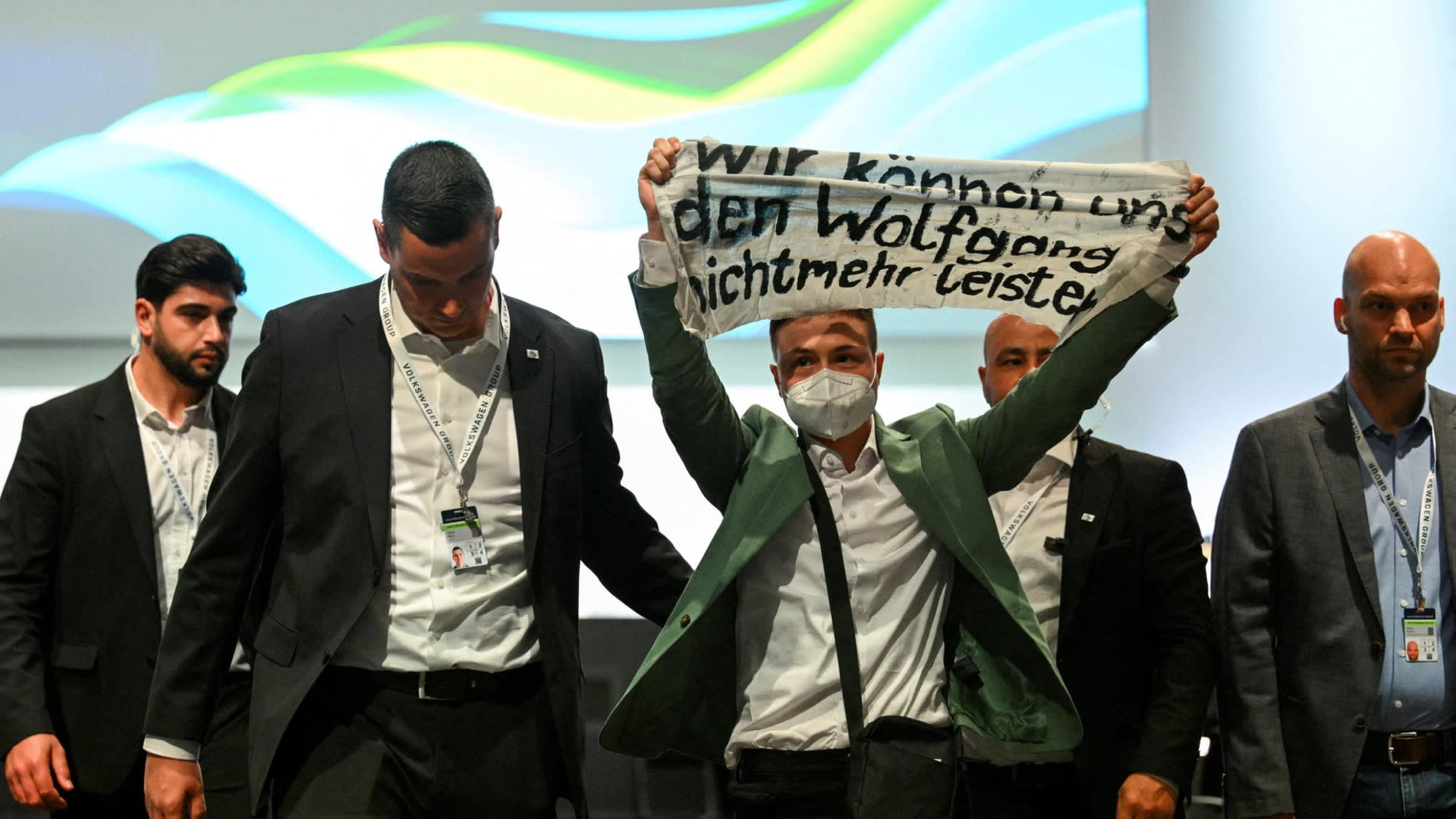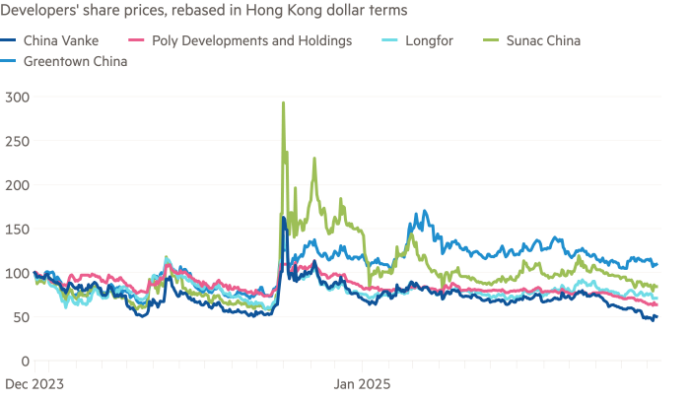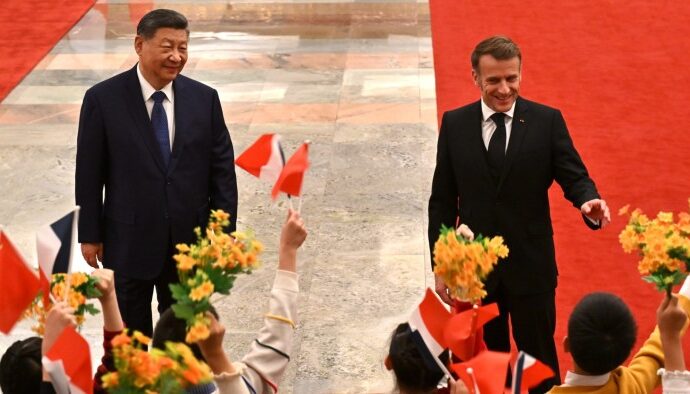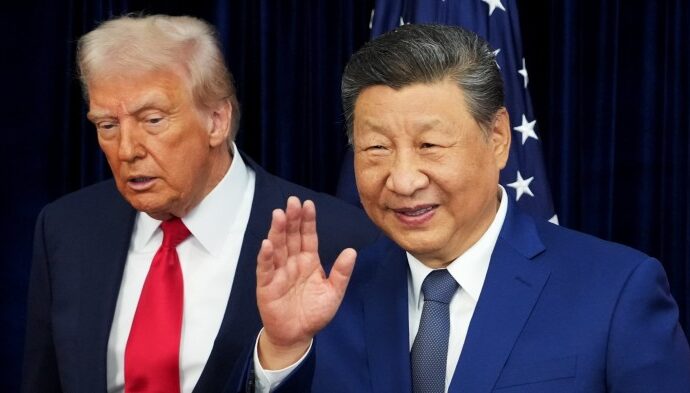
Volkswagen investors demanded an independent audit into the German carmaker’s plant in Xinjiang territory, China, as executives faced human rights and climate protesters at a turbulent annual meeting.
Security staff escorted activists carrying signs including those demanding the end of alleged Uyghur forced labour. One protester threw a cake at Wolfgang Porsche, narrowly missing the patriarch of the two families that control VW.
Investors at the meeting raised concerns around VW’s plant in a region where China has been accused of human rights abuses, including alleged mass interment in detention camps and forced labour.
The future of the plant, which has been scaled down in recent years, has become a sensitive issue for VW’s new chief executive Oliver Blume, who is also facing criticism for the carmaker’s poor sales of electric vehicles in China.
Deka Investment and Union Investment, two top-20 shareholders, called for an independent audit of the plant. Ingo Speich, head of corporate governance at Deka, said VW needed to prove it had nothing to hide, arguing this would also help its share price.
“As long as no complete proof is provided, the reputation and lawsuit risk will remain,” he warned.
Haiyuer Kuerban, an Uyghur activist and German director of the World Uyghur Congress, called on VW to not profit from Beijing’s encroaching control over minority people in Xinjiang.
“There are more than 20 detention camps in the direct vicinity of [VW’s Xinjiang] plant,” he claimed, adding that VW was the only carmaker left in the region.
VW said it was committed to respecting human rights and to good working conditions. The company runs the Xinjiang plant in conjunction with its Chinese joint-venture partner SAIC, and cannot make decisions affecting the facility alone.
Ralf Brandstätter, VW’s board member responsible for China, said the company did “not see any evidence of human rights abuses at the plant”.
In February Brandstätter visited the company’s Xinjiang plant for the first time, citing “deep concern” over reports of human rights violations. In an internal memo, he had said the factory was ‘‘of a high standard overall”, describing a separate canteen exclusively for halal dishes and a “learning island” where workers can study the Uyghur language.
VW is facing demands from investors to address the controversy surrounding its plant in Xinjiang at the same time as they push the company to increase sales in the country accused of carrying out the abuse.
Janne Werning, head of ESG at Union Investment, said the asset manager had not received any “satisfactory answers” to repeated questions about “possible human rights violations”.
In the same speech he raised concerns about VW’s performance in China and noted Chinese brands such as BYD would soon not only challenge the company in the Asian country, but also in Europe.
“For VW it is now a question of remaining relevant in the world’s largest car market — or being satisfied with being a niche supplier,” he said.


